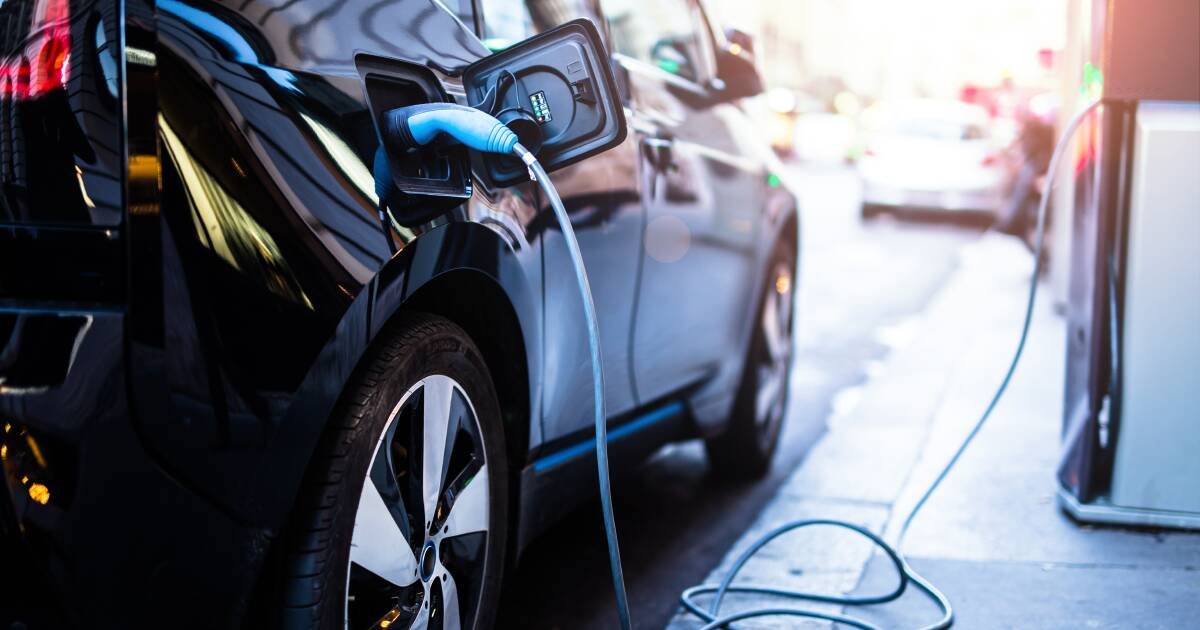
Electric vehicles have become increasingly popular in recent years, offering eco-friendly transportation options for environmentally conscientious and money-savvy consumers.
As the EV market continues to grow, many electric vehicle owners find themselves contemplating the need for a home car charger.
In this article, we’ll explore how at-home EV charging works, alongside unpacking the different types of chargers available, and whether investing in a home charger is essential for EV owners.
How Does Home Car Charging Work?
Home car charging involves connecting your electric vehicle to a power source to replenish its battery. A basic EV charger functions by regulating the flow of alternating current (AC) electricity from your home’s power supply to the vehicle. This process is relatively simple, with the charger ensuring a safe and controlled transfer of power.
AC vs. DC Electric Vehicle Charging
Home charging primarily utilises AC electricity, which is the standard power supply for residential electrical systems. AC chargers regulate the amount of power supplied to the vehicle, typically ranging from 1.8 to 22 kilowatts (kW), depending on the charger’s specifications and the capabilities of the EV’s onboard charger.
In contrast, fast DC charging, commonly found at public charging stations, delivers direct current (DC) electricity to the vehicle’s battery. These chargers operate independently of the car’s onboard charger and can provide rapid charging speeds, ranging from 50 to 350 kW.
The Three Levels of EV Charging
The industry categorises charging into three levels:
1. Level 1 Charging (aka a Granny charger): This involves using a standard power outlet (10 Amp) and is the slowest method of charging, typically adding around 10 kilometres of range per hour. This will take 4 to 48 hours to fully charge a battery from empty, depending on how big your EV’s battery capacity is.
2. Level 2 Charging (aka a Home charger): With a dedicated wall charger, Level 2 charging offers faster battery replenishment, adding approximately 40 to 130 kilometres of range per hour, depending on the charger’s power output (up to 22kW) and the vehicle’s compatibility.
3. Level 3 Charging (aka a Public DC charger): Reserved for fast DC charging stations, Level 3 Charging provides rapid battery replenishment, offering anywhere from 200 to 1000 kilometres of range per hour, depending on the charger’s capacity and the vehicle’s capabilities.
Should You Install a Home Car Charger?
The decision to invest in a home car charger depends on several factors, including your driving habits, charging needs, and budget considerations.
1. Charging Speed: While Level 1 charging via a standard power outlet may suffice for occasional use, Level 2 charging offers safer and faster charging, making it more suitable for daily charging needs. If you rely heavily on your EV for commuting or long-distance travel, a Level 2 charger is beneficial.
2. Cost: Home EV chargers vary in price, ranging from $600 to $2500 for the hardware alone, with additional costs for installation and potential electrical upgrades. Consider your budget and whether the investment aligns with your long-term charging requirements.
3. Convenience: Having an installed home charger at your property eliminates the need to rely on public charging stations, providing convenience and peace of mind, especially for daily charging routines.
4. Time-of-Use Tariffs: If you’re on a time-of-use electricity tariff or have surplus solar energy, a smart solar home charger can optimise charging times to take advantage of lower electricity rates or excess renewable energy generation.
While owning a home car charger is not a necessity for all EV owners, it can significantly enhance the charging experience, offering convenience, faster charging speeds, as well as time and cost savings in the long run.
When selecting the right EV car charger for you, it’s best to consider your circumstances, driving habits, and charging needs (i.e. expected frequency of EV charging). These considerations can help you determine not only what type of at-home EV charging unit is right for you, or if an EV charger is a worthwhile investment, but whether you could potentially benefit from investing in multiple EV chargers as well. You can also consult with an EV charging unit supplier about whether an at-home charger is worth investing in.
With recent calls in the Senate for more batteries, EVs, and electricians in Australia, however, it’s safe to say that an investment in your electric vehicle is likely to reap benefits in the long term, as the country shifts further towards renewable energy.
[ad_2]
Source link




